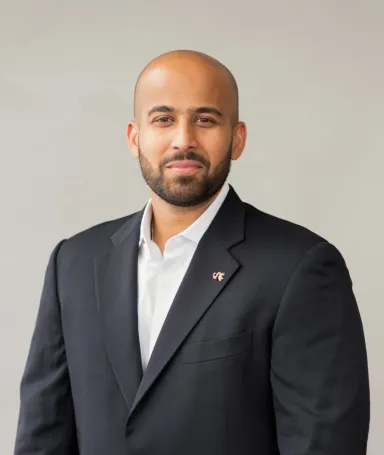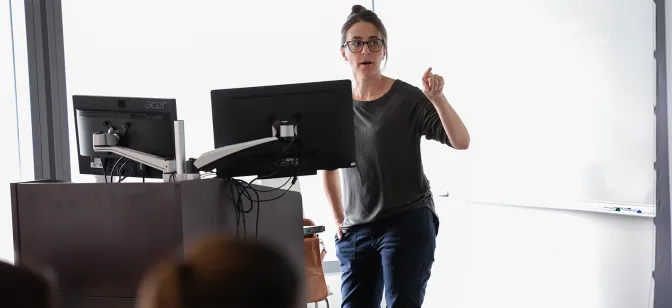Adding an Innovative Twist to Accounting Fundamentals
Every undergraduate business student takes two introductory accounting courses, ACCT 115 and 116.
That’s how it was when JT Thazhathel ’12, MBA ’19, assistant clinical professor of accounting, was a student, and in his first term as a LeBow faculty member after several years as an adjunct instructor, he set out to use these introductory courses to inform students about the directions they can take in their careers with an accounting background.
“I wouldn’t have declared an accounting major if it weren’t for my experience in ACCT 115, so my approach was to inspire the students and get them excited about accounting,” he says.
Last fall, Thazhathel combined that enthusiasm with deep knowledge of programming and an interest in incorporating technology in the classroom.
“I had students analyze the code written between me and ChatGPT based on a simple business scenario,” he says. “After formatting the data and writing some formulas, the students analyzed the effectiveness of ChatGPT.”

That innovative approach of folding emerging technology into an existing core course, in the spirit of building skills and encouraging experimentation, earned Thazhathel the Innovation in Teaching Award from LeBow’s Center for Innovation in Teaching and Learning for fall term 2023.
As he explains, when creating automations in Excel, students and professionals alike use a standard Microsoft programming language, VBA. That language is often students’ introduction to programming, but the advent of generative AI programs like ChatGPT have streamlined coding across many languages and platforms. After encouraging some students to experiment with using ChatGPT to write code in VBA, Thazhathel made his own attempt at coding the same automations.
The results were telling for both students and instructor: “ChatGPT wrote better, more concise and more effective code than me. It was not only able to produce the same results but it was clearer and annotated.”
This project, along with both of the first-year accounting courses, aligns with the newly-revised undergraduate curriculum’s focus on building students’ skills in Excel. For students who might not be well-versed in using ChatGPT, or who might only see it as a tool for crafting papers and other written assignments, it becomes a vehicle for further experimentation.
“I owe my entire professional background in accounting to developing advanced technical skills, particularly in Excel,” Thazhathel says. “My goal was to use ChatGPT as a way to show them the technical, analytical side of accounting and build this skill set.”
Building facility with automations and other coding-intensive applications can pay off in time once these students start their first co-op experiences.
“If students can do this, then they can learn other programming languages, like Python and R, through experimenting with ChatGPT instead of through a coding bootcamp,” he says. “That sets them up to go on co-op and create automations and other more efficient processes, and then they can say how much time and money they saved their employer during the six months of their co-op.”
The next step, he says, is to build on students’ enthusiasm, both for accounting and for building their technical skills, by tying ChatGPT and other new technologies to the business process, both during ACCT 116 and in their future courses.
“I knew my passion was teaching, even though I didn’t know when I’d get into doing it,” he says. “So far, it’s been very rewarding.”



